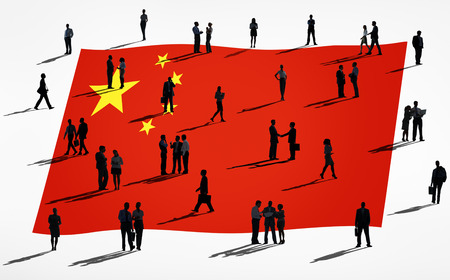 My dad worked at Fairchild from late 1950’s through the 1960’s. His second level boss was a guy named Robert Noyce, the inventor of planar technology, which placed my dad as part of the team that put the first integrated circuit into mass production.
My dad worked at Fairchild from late 1950’s through the 1960’s. His second level boss was a guy named Robert Noyce, the inventor of planar technology, which placed my dad as part of the team that put the first integrated circuit into mass production.
Noyce left Fairchild to start up Intel in 1968 and shortly afterwards, Noyce offered my dad a job at Intel as the 10th employee. Dad turned it down. With four young kids, startups are risky. Later he was laid off from Fairchild, but there were so many startups that spun out from Fairchild that the Santa Clara Valley became the Silicon Valley, and this gave my dad lots of other job opportunities.
Like planar technology, most new technologies are applicable to markets beyond the market that was first commercialized. For many reasons, the originator of the technology does not venture into these markets. Sometimes they fail to see other applications and variants of the original technology. But even when they do, executives often discount the market as too small, too difficult, or too far out of their focus and they do not pursue the opportunity.
As a new technology becomes successful, employees build both positive and negative know-how in that area of technology. Often these people leave to startup new companies that capitalize on the new market opportunities that were passed or missed by the originating company. Many of these startups grow and return investment to the founders and investors. The wealth created then funds more startups and the cycle continues. It is like a petri dish, only with a multiplication of startups instead of cells.
Most of these startups stay in the same region and this concentrates know-how and investment in the region, which brings about an ever-expanding ecosystem of startups that diverge into completely unforeseen markets by the same petri dish effects.
The story of how Fairchild gave birth to the Silicon Valley should be a wakeup call to Congress. The petri dish effect will have long term negative consequences to the U.S. as China is capturing technologies that once were controlled by American companies and spinning up massive numbers of startups in these fields.
According to technology analysts CB Insights, “China has overtaken the US in the funding of AI [Artificial Intelligence] startups,” The Verge reports. “The country accounted for 48 percent of the world’s total AI startup funding in 2017, compared to 38 percent for the US.”
Today, China leads in many areas of technology beyond just Artificial Intelligence: Quantum Computing, Solar Energy, Block Chain and more. The petri dish effect will expand these technologies into areas as yet unknown and it will become nearly impossible to unseat China in these technologies. This will lead to a national security disaster for generations to come. Congress must take the time to understand the mechanics of this and how it relates to patent protection.
No doubt there are many factors that converge to make China a better investment in technology than the U.S., but one particularly important aspect, patent protection, cannot be ignored.
It is well known that startups with patents are much more likely to get venture funding than those without patents. A patent provides two important things to investors. The first is an exclusive right, which equates to the ability to keep competitors at bay long enough to get a toe hold in the market, and it provides a means to achieve a free market value for the patent, thus enabling the investor to place a value on the patent at an early stage that relates to the market value the invention will likely achieve in the future.
The second is that a patent is a property right. If big corps steal the invention, and using their deep pockets and existing market power, massively commercialize the invention and run the startup out of business, the investors will gain control of the patent. The patent can then be leveraged to return the initial investment.
But in the U.S., patent rights are no longer secure. The test for injunctive relief is now a public interest test relegating a patent to be more like a driver’s license than a property right, and the courts and the administration are invalidating legally issued patents at alarming rates. The odds of winning a patent infringement suit in the U.S. are dismal and the cost of litigation astronomical. It should not surprise anyone that contingent fee attorneys and investors have left the patent business for greener pastures.
This is not the case in China. In 2016, 84% of patent holders win infringement cases. Of those another 87% were awarded injunctive relief. Breaking out the winners of injunctive relief, foreign patent holders were much more successful than their Chinese counterparts with nearly 100% of foreign patent holders awarded injunctive relief.
Furthermore, these Chinese patents are upheld as valid in 83% of the challenges.
Patent litigation in China takes 8.6 months to conclude, and it costs less than $200,000. Compare that to the U.S. where it can take five to six times longer (not including the inevitable appeals) and cost at least three to five millions of dollars for even an uncomplicated dispute over relatively simple technology.
Technology areas that China leads are virtually all related to software. As shown in analysis by Kevin Madigan and Adam Mossoff in their paper Turning Gold to Lead: How Patent Eligibility Doctrine Is Undermining U.S. Leadership in Innovation (April 13, 2017), protecting software in the United States is a high-risk endeavor. This report shows nearly 17,000 patents invalidated for subject matter eligibility of which 1,700 are still valid in China and/or Europe. It is no surprise that the U.S. is losing entire swaths of technology to the Chinese.
We now know that the bulk of startups in Artificial Intelligence are now in China, but China is leading in many other software related technologies critical to our national security. A major reason for this tectonic shift in technology from the U.S. to China is that we have crashed our patent system, which has created uncertainty and that uncertainty caused investors to go elsewhere. At the same time, China laid out the red carpet for these investors by strengthened their patent system.
Today, Chinese startups attract investment and U.S. startups do not. Early stage funding of U.S. companies is down 62%. We are at a 40 year low in startups. The Chamber of Commerce dropped the U.S. patent system to 12th place globally.
If the U.S. continues the status quo, we will lose these markets for a generation or more. Under the current patent system, Fairchild would not have existed and there would be no Silicon Valley. At least not in the United States. It would be in China.
In China today, they are building those key pioneers, we are not. They are building the know-how, we are not. And the petri dish effect will keep that technology in China for generations.
I have sat in 150 House offices since November explaining how this works. Many offices in both parties now understand and want it fixed this Congressional term, but key offices in the Judiciary Committees want to wait and see. “Maybe next Congress” they say. “Let’s get more data.”
Congress fiddles while Rome burns. We must fix the patent system this Congressional term or pay the consequences for generations to come.

![[IPWatchdog Logo]](https://ipwatchdog.com/wp-content/themes/IPWatchdog%20-%202023/assets/images/temp/logo-small@2x.png)

![[Advertisement]](https://ipwatchdog.com/wp-content/uploads/2024/04/Patent-Litigation-Masters-2024-sidebar-early-bird-ends-Apr-21-last-chance-700x500-1.jpg)

![[Advertisement]](https://ipwatchdog.com/wp-content/uploads/2021/12/WEBINAR-336-x-280-px.png)
![[Advertisement]](https://ipwatchdog.com/wp-content/uploads/2021/12/2021-Patent-Practice-on-Demand-recorded-Feb-2021-336-x-280.jpg)
![[Advertisement]](https://ipwatchdog.com/wp-content/uploads/2021/12/Ad-4-The-Invent-Patent-System™.png)







Join the Discussion
6 comments so far.
angry dude
March 8, 2018 01:01 pmSamantha @5
r u a shill for efficient infringers ??
about “new use”:
consider the fact that the exact chemical behind viagra was previously well known but the new use of it wasn’t – thus patent eligible
You probably don’t care being a gal but I do care as most other readers of this blog
The world is much better with expensive viagra under patent than without viagra at all
come on, go can go home now
Samantha
March 8, 2018 01:08 amExcept:
1) Quantum communication isn’t quantum computing
2) Filing a single patent for compressing blockchains by using hashing algorithms is hardly “leading”
3) Probably the most troubling to this article – AI isn’t going to be implemented via software.
Granted, the frustration against the USPTO is palpable here but the author is a guy who “invented” pulse plasma technology and named his company after the Soviet Probes (“Zond program”) that used that tech as engines and they were launched decades before he filed his application. A new use of the technology does not grant a patent on said technology, at most he gets the container for holding the substrate.
Come on guys, you can do better
SuperViral
March 7, 2018 08:38 amangry dude@1: If what you mean by “fixing the US patent system includes restoring injunctive relief, I would agree that your argument/claim has merit. I don”t think an adverse eight (or even nine) figure damages award would materially affect the stock price of a company in the Big Tech cabal. But the threat of an injunction shutting down a multi-billion dollar product line and allowing competitors to fill the void and permanently steal market share should have a significant effect on equity valuation. As you pointed out, RIM”s stock price popped by 20% once the market got over the very real threat/fear that Blackberry devices were going to be enjoined from sale. As an aside, thank you for meaningfully contributing to the discussion on this topic and for not just being an angry dude. I like the new you much better! my customer essay
John Rizzo
March 6, 2018 09:13 pmPaul, excellent article that really galvanises the invention dilemma in the US. But the root cause is the bean counters, financial controllers who outsource jobs to China and other cheap labor markets thereby undermining the desire of young people to even bother to gravitate towards a technology career. I grew up a hardware design engineer but those jobs no longer exist. When we taught China to manufacture we also had to teach them how to test and that planted the seeds of development. All of a sudden, data sheets and technical briefs were no longer available in English, only Chinese thereby keeping the knowledge overseas. It’s to late, as you clearly pointed out, to fix the technology leap. We must redouble our efforts to reinvent something we haven’t already given away.
Anon
March 5, 2018 02:34 pmThese stats seem to mirror the current historical threads and how an early United States took a much more positive view of patents.
Bemused
March 4, 2018 09:25 amPaul, very interesting article and one that all our elected representatives (and most importantly, President Trump) should read if they have absolutely any concern about the intermediate and long-term future of this great nation.
Between the technically illiterate dummies (and I’m trying really hard to be nice here) on SCOTUS, the Google-bought judges on the CAFC and the butchers at the PTAB, the American patent system has been disemboweled.
Without significant and immediate change (and as you point out), the effects will be long-felt and the consequences disastrous for generations to come.